10 Things Parents Do That Cause Their Children Throw More Tantrums
If you’re a parent, you know that raising children is no easy task. In fact, it can be very difficult to do. It requires perseverance and smart thinking. There is no manual that contains all the answers for your specific situation, you’ve got to make the best of what you’ve got. Even so, there are some specific behaviors from our children that we do not fully understand, and by trying to correct them, we might actually be making things worse, which can be frustrating and exhausting for both parents and children. The good news is that there are some explanations for when they do strange things like cut their own hair or when they refuse to go somewhere with you.
Bright Side did some research on the subject and found 10 things children do that parents may misinterpret as bad behavior, but that actually aren’t, and we wanted to share our results with you.
1. Try to control any impulsive reaction you might have
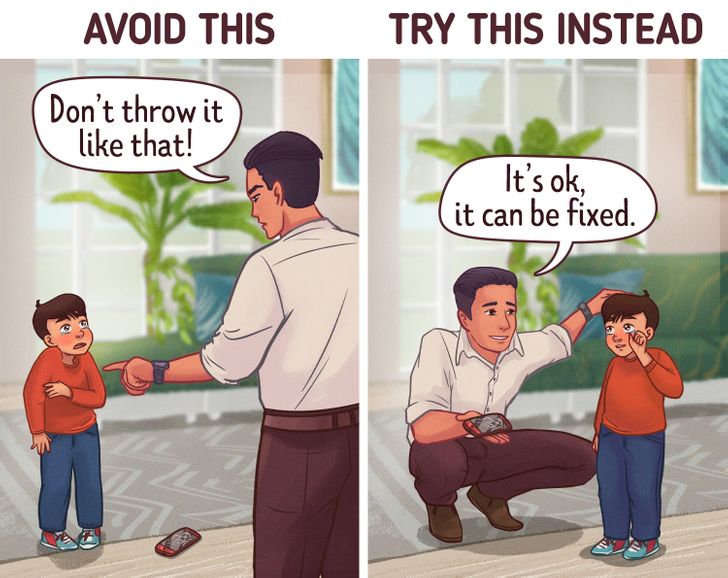
On many occasions, parents can get frustrated after telling their children not to do something and not a second passes by before they are already doing the exact same thing we asked them not to do. However, the truth is that children can’t always manage to control their impulses to break the rules. Self-control is a skill that isn’t fully developed until the teenage years, so you can expect the process of learning to regulate impulses to be a long and slow one.
Keeping calm and collected is key to being able to deal with this type of situation, as it will mainly give you time to think and provide the most beneficial response for the child, also taking into account your intentions as a parent.
2. Overstimulation
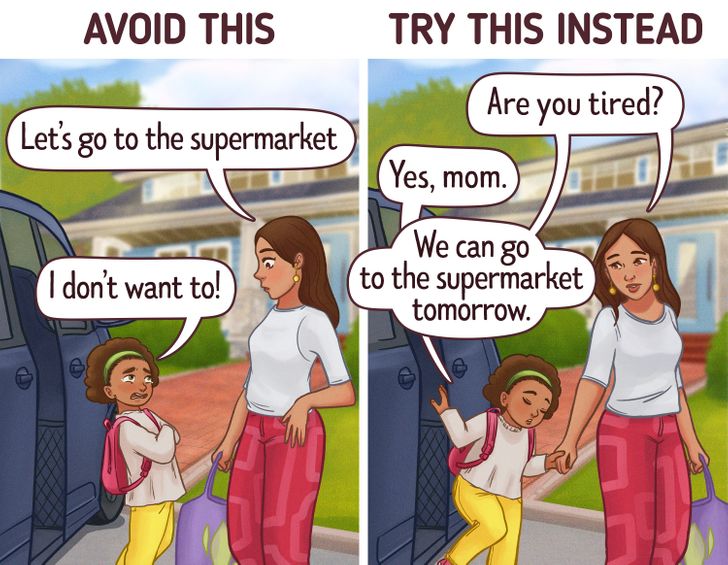
It’s good to keep our children active by encouraging them to take part in activities that help them thrive. However, as the saying goes, “You can have too much of a good thing.” If we overload their days with tasks, we could actually be encouraging overstimulation. This normally happens when children are subject to excessive physical activity, constant intense experiences, and loud sounds, among others things. What all of these have in common is that they are overwhelming for children and can actually make them feel exhausted. This will be reflected in their mood and can also make them hyperactive. Reactions to this overstimulation may vary according to the age of the child. Some of the examples of this type of behavior are:
- In newborns and infants: moodiness, tiredness, turning their faces away, clenching their fists, and kicking.
- In children going to preschool: tiredness, moodiness, crying without the ability to explain their emotions, tantrums on the floor, refusal to engage in any other activity.
- In children going to elementary school: clumsiness, seeking more attention, more requests for help than usual in school or with home tasks.
That’s why it’s recommended to balance activities with moments of calm so that children feel safe and calm.
3. Not knowing how to read their emotions in special conditions
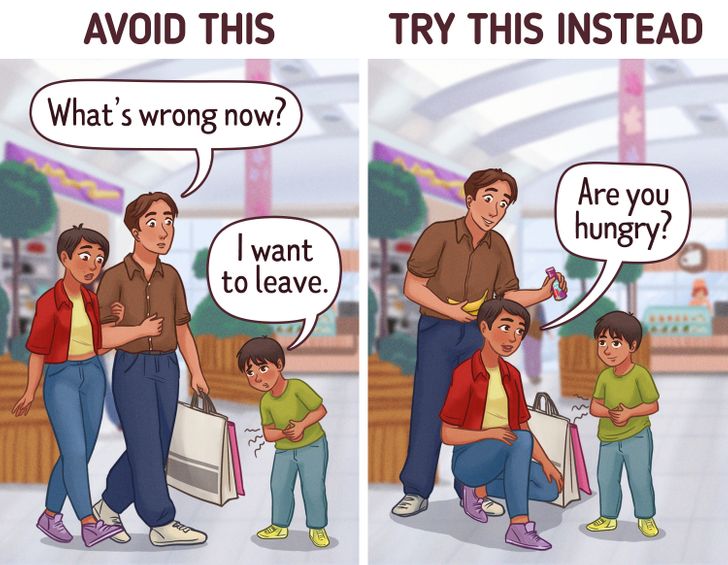
Sometimes, as an adult, you might experience mood swings, like for instance, when you are tired, when you have a bad night of sleep, when you’re stressed, or simply when you are hungry. The same thing happens to children, but the main difference is that, just like we mentioned earlier, their capacity for emotional control in these special situations is much lower than that of adults. Therefore, by observing these mood swings we can act more effectively because children do not always know how to communicate what is happening to them.
There are several ways to approach them so that they can have the confidence to tell you what they are feeling or what they’ve gone through during the day. You should start by always making sure they’re in a calm environment so that you can ask them directly. Understanding what is happening to the child is also essential. In order to do that, you can share an anecdote of yours that relates to the same situation, which could allow you to create an emotional and empathic connection.
4. Not allowing them to express their negative feelings
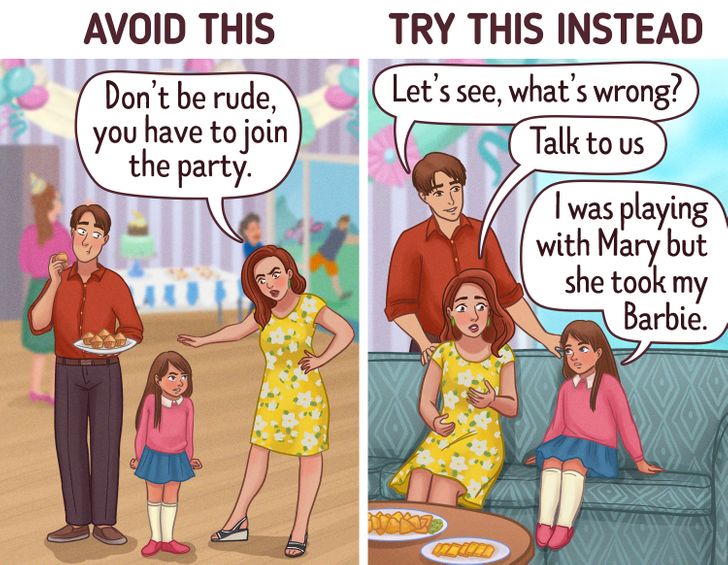
Children experience the same feelings as adults, only, unlike us, they cannot hide or repress them. This is also related to what we mentioned earlier about kids not having finished developing their self-control skills. On top of that, they don’t always know how to express their feelings with words. That’s why it’s so important to try and help them find the right words to talk about them. A good way of doing that is by asking them directly what’s going on, as well as giving them their space. You can also resort to series or movies they like to translate what they feel into reality.
5. Not understanding their need to move and be active
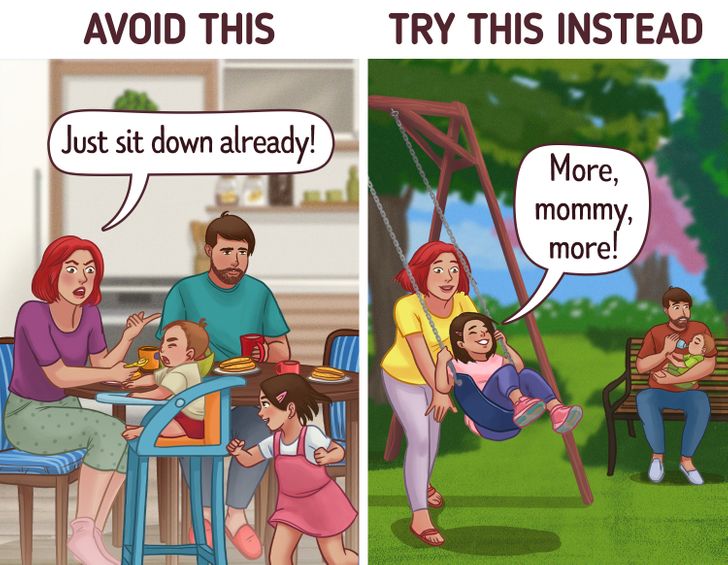
Many times, as parents, you can get frustrated because as an adult it’s hard to understand why children can’t just relax for a while. And regardless of how much you tell a child to stand still, he or she will not do it. Most children are so full of energy that they actually feel an urgent need to move. That’s why, instead of trying to correct them, it might be better to help them channel that energy into something that will balance it out. You can, for example, go play in the park, ride a bike, or play soccer or any other sport that will require them to move, etc.
6. Curbing their drive for autonomy
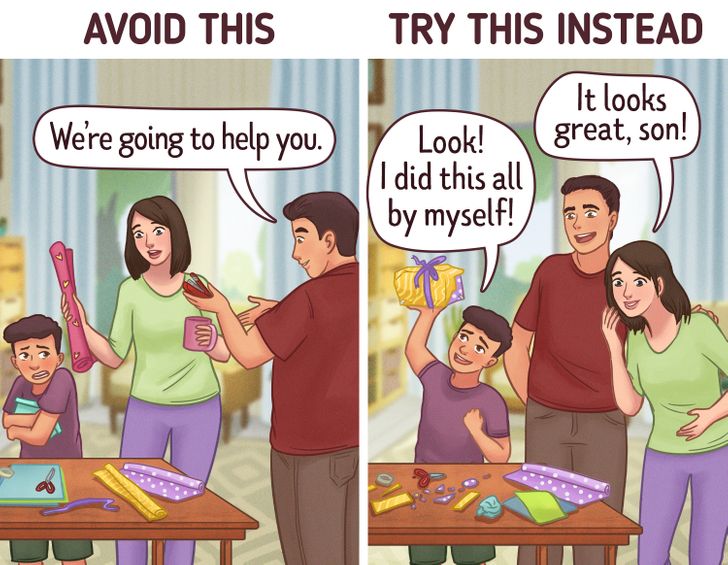
Much like most adults, children actually like being autonomous and feeling that they have a say or that they can own their own decisions. You’ve probably noticed before that they tend to rebel against their parents when they try to help them with something. For parents, that often comes across as something strange and they can have a hard time understanding why children react the way they do. However, if the child wants to make his or her bed by themselves, it is better to let them do it. After all, this is the best way to let them know that they will be able to carry out their plans and thus make them feel more autonomous.
7. Failure to understand the downside of their strengths
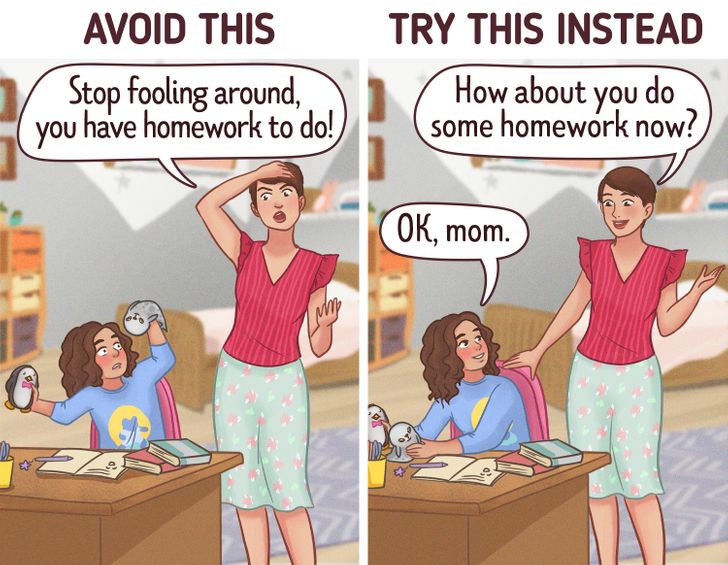
Every person is different, and that includes children of course. This means that we all have different sets of skills: some people can focus more, some others tend to be more intuitive, and others may be more careful or have a tendency to be perfectionists. Much like coins, all skills have 2 sides to them. For instance, being a perfectionist can be good for work, but might cause problems in human interactions. As you can see from that example, the strengths of a person’s skill set might stand out in specific activities. A child that’s a perfectionist at school, for example, may become very distracted at home.
It’s essential to never forget that, as parents, we should be able to distinguish the behavior a child is displaying at a specific moment, from the way the child actually is. It is recommended to identify undesired behaviors in order to correct them while at the same time not indicating that their personality isn’t right. Doing the latter will prevent children from being exposed to psychological damage now and in the future.
8. Disrupting their desire to play
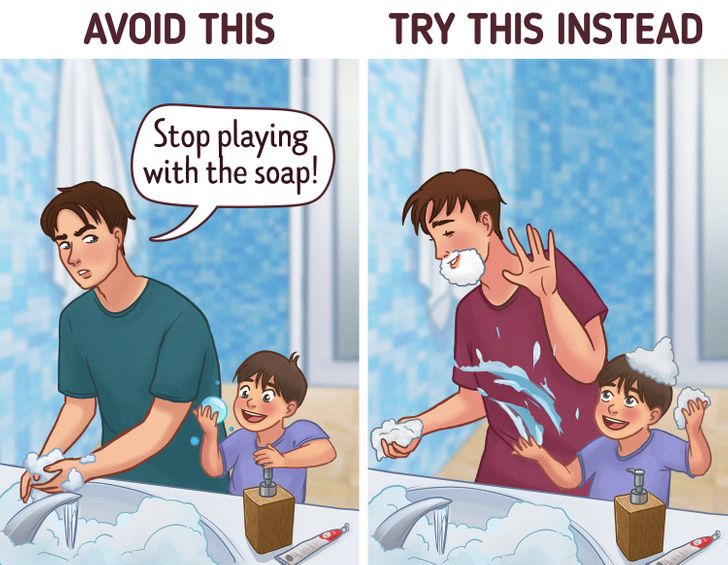
As mentioned above, children can have a lot of energy and, consequently, a lot of drive to play. If your child is like this, you should keep in mind that playing is a fundamental part of their growth because it actually helps them develop different skills and learn new things. However, sometimes adults are not able to understand a child’s invitation to play or they confuse it with bad behavior, when, in fact, they just want to share their emotions and communicate with others. That is why it is good to accept this offer to play, even if it interrupts some daily activity.
9. Emotional contagion
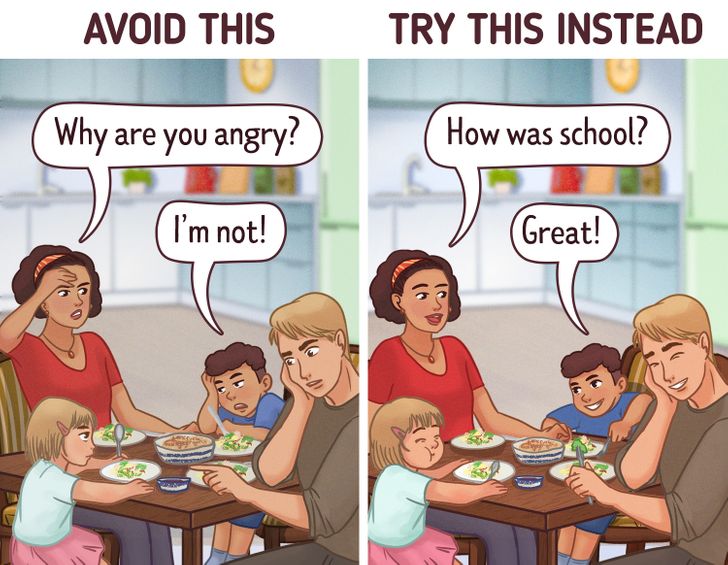
Children are like a sponge and, as such, they react to the attitudes, emotions, and mindsets that their parents or other role models have around them. That means that if adults are constantly stressed, their children will most likely also exhibit that mood. Their reaction can be explained by a phenomenon called emotional contagion, which, according to neuroscience, is an imitation effect that goes beyond simply copying gestures and goes so far as to spread emotions as if they were vibes floating in a room. This is why it is important to maintain a calm environment so that the child can absorb positive emotions.
10. Setting ineffective boundaries

Discrepancy regarding boundaries is always a confusing factor for children, as they do not understand why one day they are rewarded with a sweet for no apparent reason and the next day they are not, even if they have performed the same action. It is very important to stick to the rules you impose on a child, whether that’s to reward them or set boundaries. This is because children can become frustrated by not having clear rules and that can backfire very quickly.
What other “bad” behavior do your children have that you have misunderstood? What other similar advice can you share?
Comments
Yeah, I think it was helpful, to.
Related Reads
13 Phrases Parents Use That Can Push a Kid to Seek Therapy in the Future

16 Stereotypes That Modern Parents Should Leave in the Past

7 Things Parents Do That Unintentionally Push Kids Away

20 Pictures That Show How Deceitful First Impressions Can Be

I Kicked My Friends Out of My Home After Their Daughter’s Tantrum

11 Rules Our Parents Followed That May Puzzle Us Today

14 Parents Who Masterfully Hid Life-Changing Secrets From Their Kids

15+ Times When People Bought Junk at a Garage Sale, but Actually Ended Up With a Treasure Instead

17 Photos That Show How a Smile Can Transform a Face

I Stole the Spotlight From My Cousin and His New Wife After He Proposed at My Wedding

My MIL Secretly Removed All Vegan Options From Our Wedding, So I Gave Her a Taste of Her Own Medicine

17 Mothers Whose Sarcastic Remarks Can Outshine Any Comic
